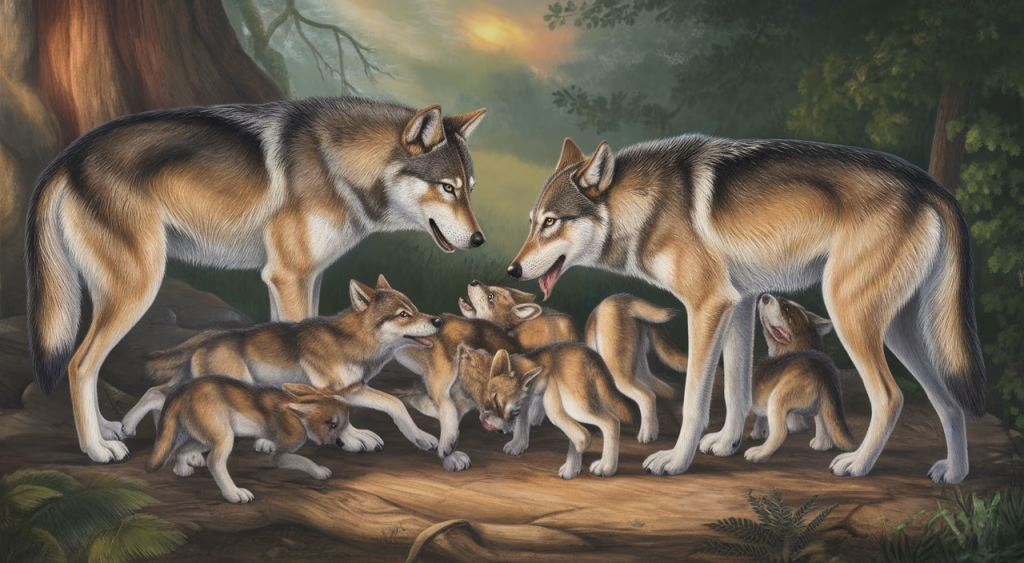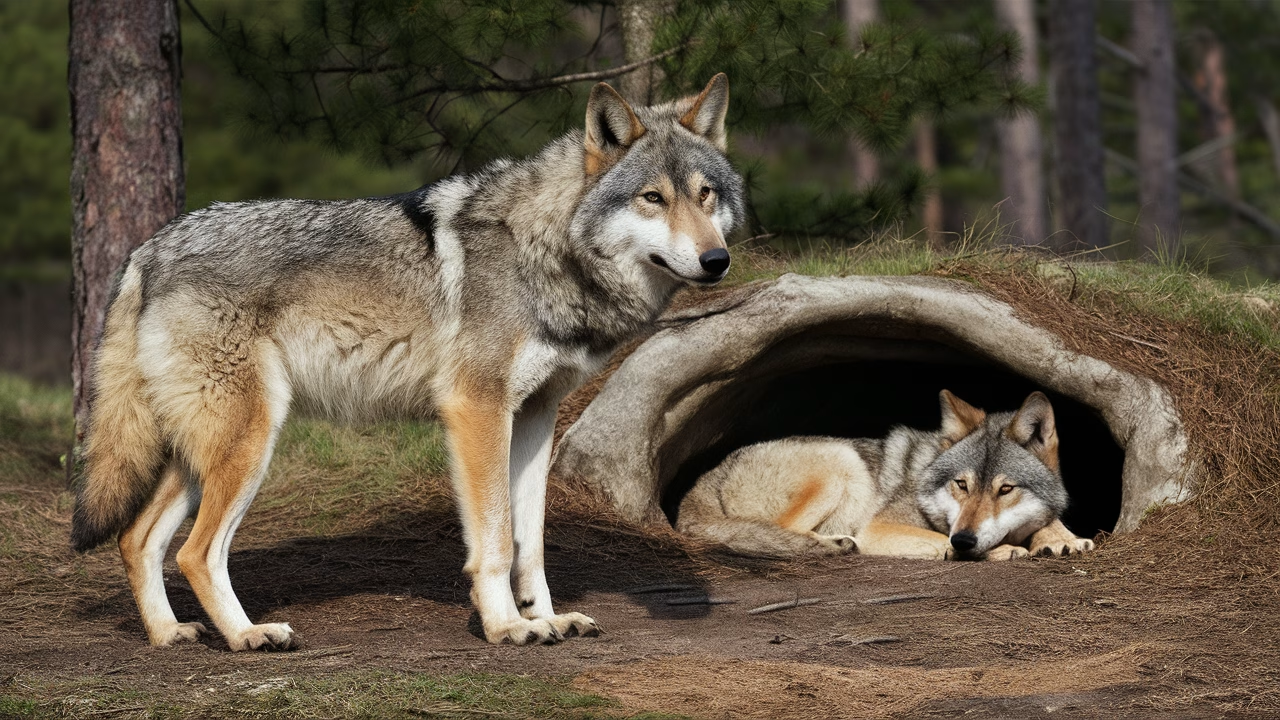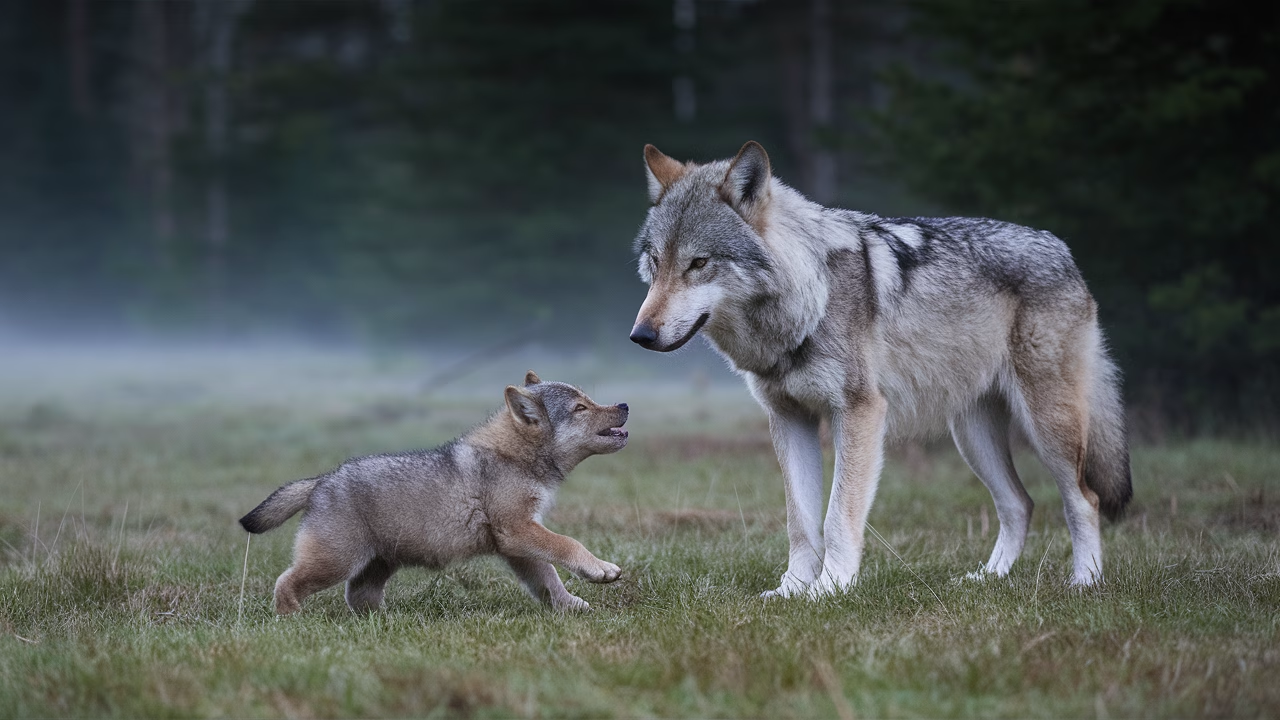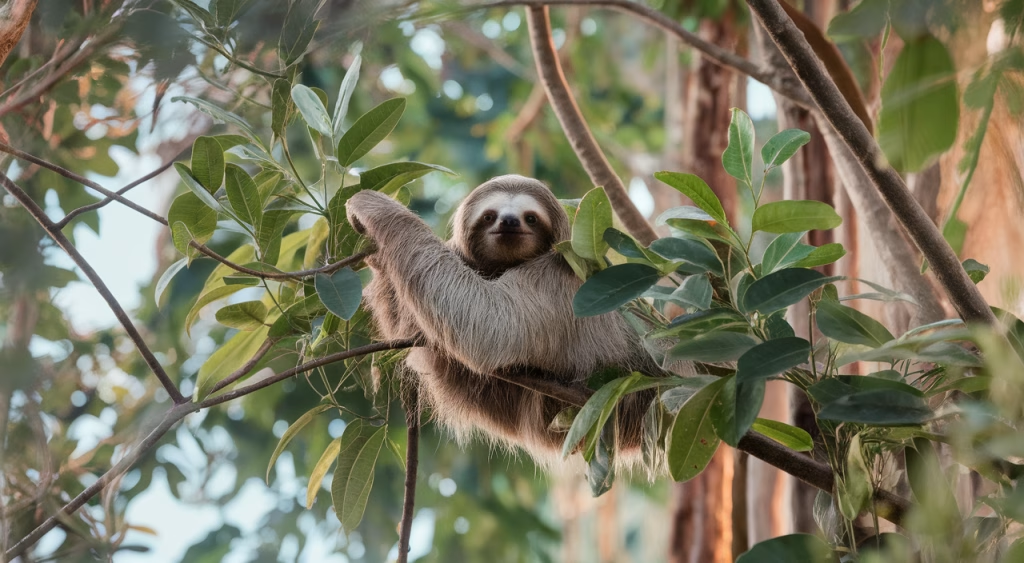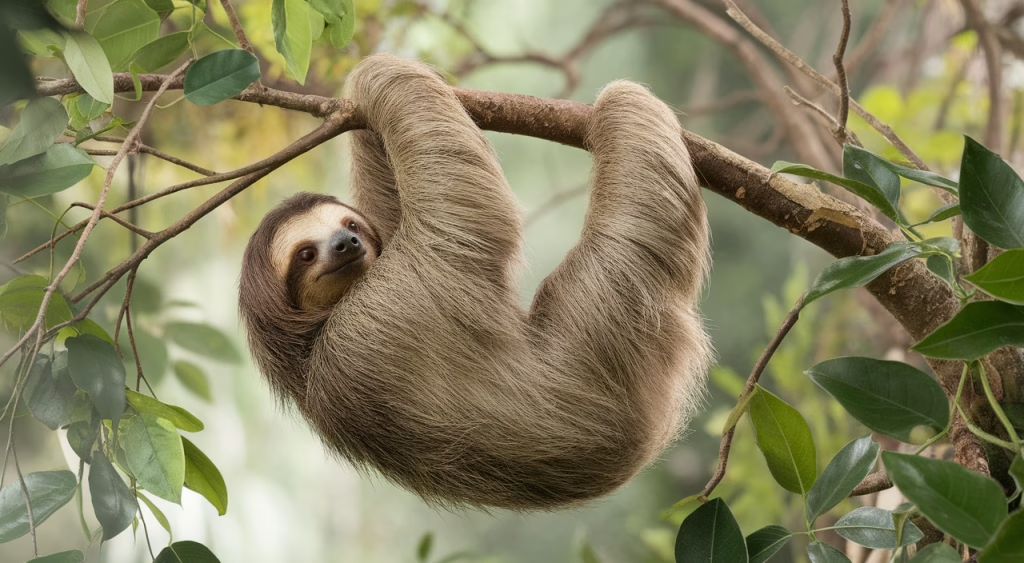Do male wolves really help raise pups?
Yes — male wolves help raise pups through hands-on parenting that goes far beyond what most wild species offer. Unlike many animals where males disappear after mating, male wolves become devoted family members who actively feed, protect, and teach their young throughout their development.
TL;DR: How Male Wolves Help Raise Pups
- Male wolves help feed pups by regurgitating food and bringing back prey to the den.
- They serve as den protectors, standing guard near the den entrance to defend against intruders.
- Fathers teach and socialize pups as they grow, helping them learn survival skills through play and observation.
- All pack members assist, including older siblings, which strengthens the entire wolf family bond.
The Importance of Male Wolves in Raising Pups
When you think about wolf families, the role of male wolves in pup care might surprise you. These dedicated fathers don’t just provide genetic material — they become full-time caregivers who help raise pups from birth to independence. In wolf families, fatherhood means commitment, protection, and teaching.
From mid-spring through early summer — when wolf pups are most vulnerable — male wolves transform from fierce hunters to nurturing caregivers. Their parenting role seamlessly blends protector, provider, and teacher, showcasing a depth of family commitment that’s remarkable in the wild.
Understanding Wolf Families
Wolf families operate like close-knit communities where every pack member has a role in raising the next generation. A typical wolf family consists of breeding adults and their offspring from multiple years, creating a multi-generational support system that ensures pup survival.
These wolf families thrive on cooperation and strong social bonds. When wolf pups are born, the entire pack — especially male wolves — mobilizes to support the mother and protect the vulnerable young. This collective pup care system is what makes wolf behavior so fascinating to study.
While the mother stays in the den nursing newborn pups, male wolves take on crucial roles: they guard the den entrance, hunt for the family, and ensure the nursing mother has food. This coordinated effort happens in wolf packs worldwide, from North American gray wolves to European forest wolves, showing how universal this parenting behavior is among wolf families.
Roles of Pack Members in Pup Care
Raising wolf pups requires the entire pack’s involvement. Here’s how each family member contributes to successful pup care:
| Pack Member | Key Role in Pup Care |
|---|---|
| Male Wolves (Fathers) | Bring food, protect the den, teach social behaviors |
| Mother Wolves | Nurse pups, stay in the den during first few weeks |
| Older Siblings | Babysit pups, play with them, help feed |
| Other Pack Members | Guard duty, bring food, mimic play behavior |
Male wolves often position themselves strategically near the den, giving the mother space to rest while maintaining security. Once pups begin weaning at 6-8 weeks, male wolves actively participate in feeding by regurgitating pre-digested meals — a crucial nutritional bridge that helps pups transition to solid food.
Field observations reveal fascinating male wolf behaviors: fathers will howl gently to encourage timid pups to emerge from the den, drop fresh prey nearby while scanning for threats, and patiently allow pups to practice hunting moves on their tails and legs. These aren’t random acts — they’re instinctive parenting behaviors that male wolves use to help raise pups successfully.
The Dynamics of Wolf Pack Behavior
Wolf pups learn essential survival skills through constant interaction with pack members, particularly male wolves who serve as primary teachers and role models. Every playful interaction and gentle correction shapes pup development and prepares them for adult wolf life.
Male wolves demonstrate remarkable patience with energetic pups who nip, pounce, and tumble around them. These interactions aren’t just play — they’re educational experiences where pups learn hunting coordination, social hierarchy, and communication skills. This mentoring approach exemplifies healthy male wolves parenting behavior.
When pups become too aggressive or break social boundaries, male wolves provide gentle discipline through soft growls or redirective nudging. This teaches young wolves appropriate pack behavior and social etiquette that will be crucial for future cooperation in hunts and family life.
Think of wolf families as villages where every adult helps raise the children, except this village operates through complex scent communication, howling patterns, and subtle body language. In this intricate system of pup care, male wolves serve as both leaders and active participants.
Nurturing Young Wolves
By three months old, wolf pups become energetic explorers who need constant guidance and protection. Male wolves help manage this critical development phase by initiating structured play that builds endurance, coordination, and strategic thinking — all essential skills for adult wolves.
As pups venture farther from the den, male wolves patrol the surrounding territory to ensure safety. They often postpone solo hunting trips during this vulnerable period, demonstrating the extraordinary paternal investment that characterizes how male wolves help raise pups in the wild.
Eventually, these dedicated fathers become hunting instructors, teaching young wolves proper stalking techniques, chase strategies, and pack coordination. The male wolves role in raising young wolves extends well beyond basic care — they’re mentors who shape the next generation of skilled hunters and cooperative family members.
Final Thoughts
Understanding how male wolves help raise pups challenges common assumptions about wild animal fatherhood. These devoted fathers prove that wolf families succeed through cooperation, dedication, and active parenting from both parents and extended pack members.
Next time you hear wolves howling in the distance, remember that those calls might be loving fathers communicating with their pups — a reminder of the deep family bonds that make wolf behavior so remarkable to observe and study.
FAQs About Male Wolf Parenting
Do male wolves stay with their pups?
Yes, male wolves remain actively involved in raising and protecting their pups until they mature, often for over a year.
How do male wolves help feed pups?
They regurgitate food for the pups or carry meat back to the den after a hunt.
Do all wolf pack members raise pups?
Yes, pup care is a collective task. Older siblings and sub-adults often help babysit and protect young pups.
Are male wolves aggressive toward pups?
No, they are usually very tolerant and gently enforce boundaries through non-aggressive play and social correction.
When do pups start learning from male wolves?
By 8–12 weeks, pups start mimicking adult behaviors. Males often guide via interactive play and early social lessons.
Do male wolves protect the den?
Absolutely. Males often stand guard near dens, keeping watch for predators or rival packs.
Why do scientists study male wolves’ parenting behavior?
Because it provides valuable insight into mammalian social structures, cooperation, and family-based survival strategies.

